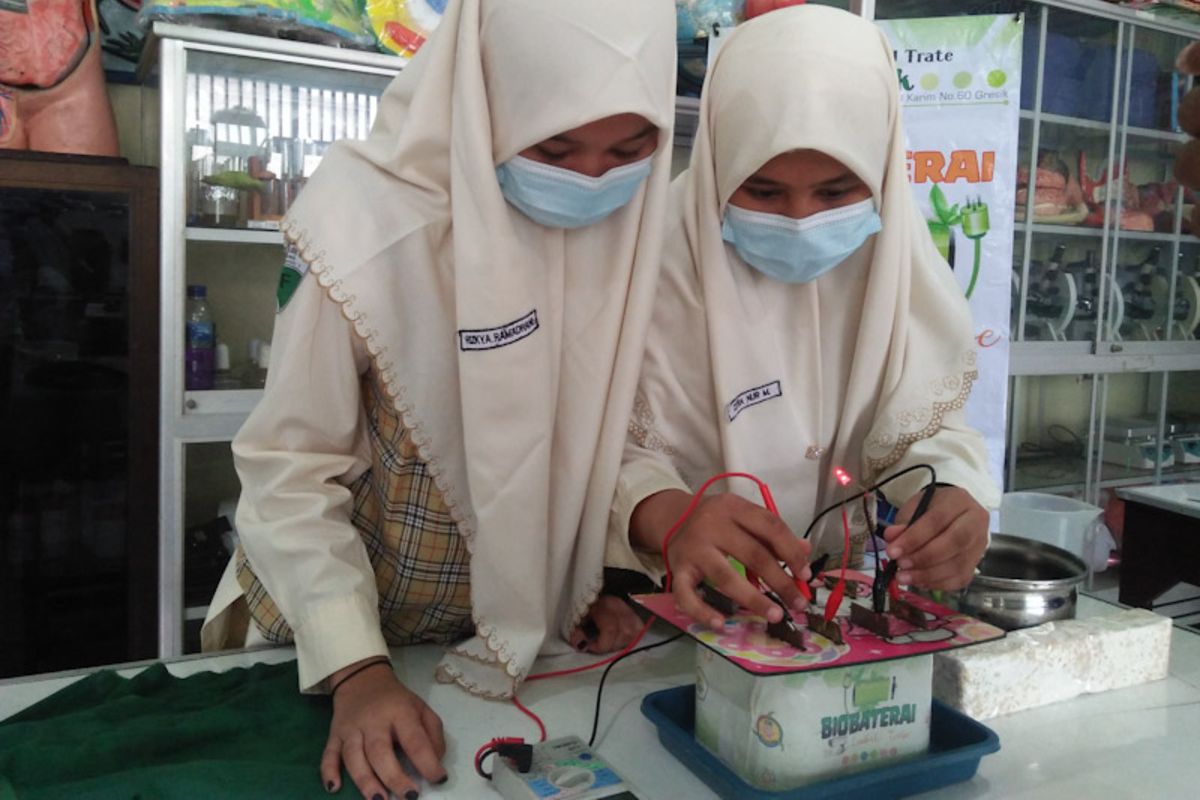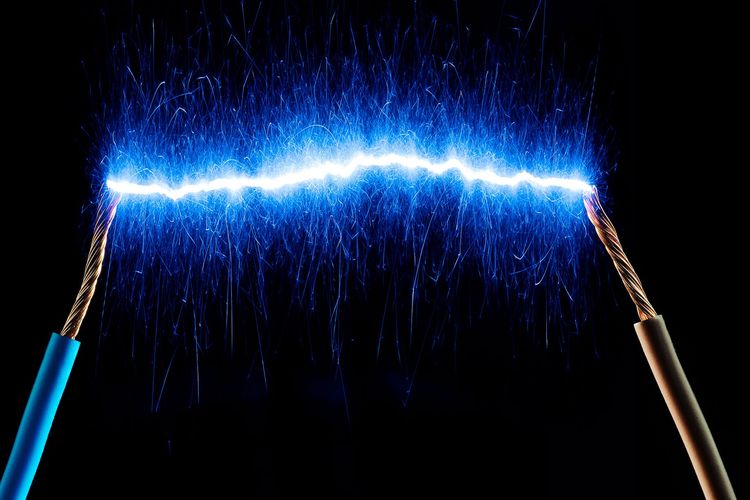Indonesian Schoolchildren Create Electricity from Tempeh Waste

GRESIK, KOMPAS.com – For millions of Indonesian school children, the Covid-19 pandemic and the distance learning it brought might have hampered the educational process, much less keep them from inventing.
But for 8th grade students Citra Nur Ma’rifah and Rizkya Ramadhani in Gresik, East Java, the coronavirus did not prevent them from learning or innovating.
The 14-year old students of the Tsanawiyah Madrassa [MTs] by the Nahdlatul Ulama [NU] Trate Islamic organization succeeded in generating electric currents off waste derived from fermented soybeans used to make tempeh.
Also read: PLN Unveils Hybrid Solar Power Plant for Jakarta Area
This innovation in renewable energy generated attention, after it won first prize in a science fair held by the Aliyah State Madrassa [MAN 1] earlier this year.
“We first got the idea for our science fair project to create [electricity from tempeh waste] from tempeh factories near our houses and school. We noticed that the factories often throw their waste at will,” said Citra to the media on Wednesday.
Citra and Rizkya managed to derive renewable energy in the form of electrical currents from the tempeh waste in four months of research from July to November 2020. The two used water as a conductor in turning the waste to electricity.
“We would mix one liter of water on 300 milliliters of toxic waste to produce 3.42 volts or 13.50 milliamperes of electricity. This amount of electricity currents is enough to turn on an LED light for three hours,” said Citra, who labelled the duo’s innovation as Biobaterai.
 Illustration of an electricity current
Illustration of an electricity currentAlso read: East Nusa Tenggara Aims to Pioneer Solar Power in Indonesia
“We also used cables as conductors, as well as metal plates and tin that functions as positive and negative electrodes.” But like all experiments in their inception, Citra admitted that they still have much work to be done before it can live up to its potential.
But the imperfections does not keep their teacher and mentor Faiq Rofiqi from being upbeat about Citra and Rizkya’s innovation. “
We are proud of our students’ innovativeness. The school also supported their project, and are happy to provide them with the facilities for their research.”
He hoped that his students’ research can be developed even further by other researchers, and reduce the dependency of power stations as well as other energy sources on finite energy sources.
(Writer: Hamzah Arfah, Gresik Contributor | Editor: Robertus Belarminus)
Sources:
Simak breaking news dan berita pilihan kami langsung di ponselmu. Pilih saluran andalanmu akses berita Kompas.com WhatsApp Channel : https://www.whatsapp.com/channel/0029VaFPbedBPzjZrk13HO3D. Pastikan kamu sudah install aplikasi WhatsApp ya.






























